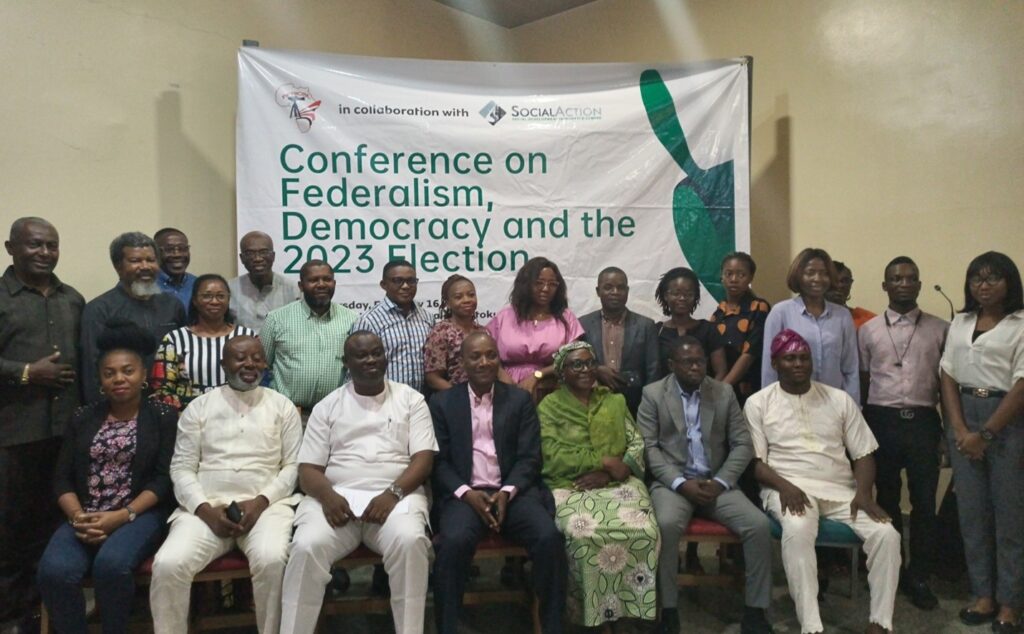
The African Centre for Media and Information Literacy (AFRICMIL), in collaboration with Social Development Integrated Centre (Social Action), on Thursday, February 16, 2023, held a symposium on Federalism, Democracy and the 2023 Election. The event was held at the Rockview Hotel Royale, Wuse 2, Abuja, Nigeria.
In his opening remarks, Dr Chido Onumah, coordinator of AFRICMIL said the conference was taking place amid heightened calls for a review of Nigeria’s federal system, which has continued to provoke questions about what the federating entities should be, citizenship rights and fiscal federalism. He further encouraged all to participate effectively in the conference, especially as the 2023 Elections is around the corner.
Mr. Botti Isaac, programmes coordinator of Social Action, in a goodwill message on behalf of the Executive Director, commended AFRICMIL for the program initiative and hoped the conference would open space for a constructive dialogue on promoting democracy, federalism and nation-building in Nigeria.
The symposium featured Dr. Sam Amadi, Director, Abuja School of Social and Political Thoughts, as keynote speaker as well as panellists; Dahiru Majeed, a newspaper columnist and Comrade Hauwa Mustapha, policy analyst and social advocate.
Dr. Sam Amadi spoke extensively on “The Nature of the Nigerian State, Democracy and the Future of Federalism”. In his presentation, Dr. Amadi attributed the failure of democracy in Nigeria to the high-level criminality of the elites which he termed, “Feudal Autocracy”. This failure, he explained, has given rise to three crises in the country; nationality, state of religion and value crisis. He, therefore, posits a re-conceptualization of Nigeria’s federal structure and a transformation of the state-security relationship to disrupt elitism.
Mr. Dahiru Majeed, in his presentation on “Federalism, Democracy and Identity Politics in Nigeria”, stated that while there is nothing wrong with democracy, that of Nigeria has failed because of our flawed federal structure and lack of democratic citizen participation.
In his opinion, Nigeria needs an enlightened political leadership that applies political will to improve the social life of the masses. He emphasized the need for a deliberate process to build the nation and united leadership to drive the process for true Democracy.
On her part, Comrade Hauwa Mustapha believes that true federalism is impossible in a Nation that has no common identity. She lamented the ethnic and religious bias that exists in the country and how this has denied the populace access to the Nation’s resources. According to her, true democracy can only exist in Nigeria if the narrative around ethnicity and religion is changed and autonomy is given to the local government which is closest to the people.
Participants engaged the resource persons on the various subjects discussed, particularly with reference to the upcoming elections. It was unanimously agreed that the election does not solve the problem because the process of emerging political leaders in Nigeria is flawed. All were therefore encouraged to engage in the political process during this post-election phase but also ensure they exercised their civic right by voting during the elections.
